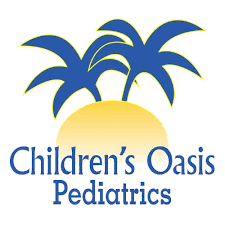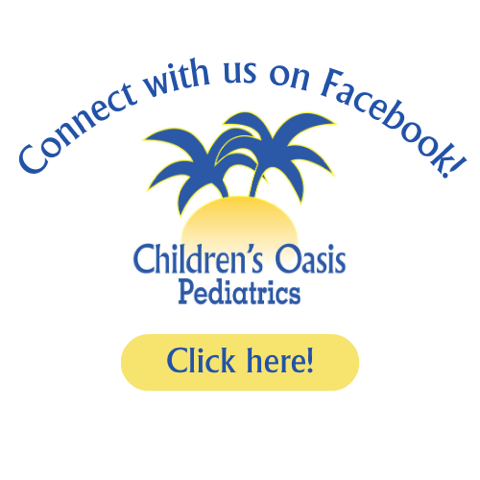What's Going Around
Seasonal allergies, or hay fever, are very common at this time of year. Typical symptoms include watery, itchy, red eyes; a clear runny nose; sneezing; and an itchy palate or throat. The most common triggers are trees in the spring, grasses in the summer, and weeds in the fall!
Effective non-sedating medications are now available for children over the age of 2 without a prescription for treatment of seasonal allergies. These include loratadine (generic Claritin), Claritin, and Zyrtec. These medications can be given as needed for allergy symptoms. If you think your child has seasonal allergies and he or she is not responding to medication OR if you are not sure, please make an appointment in our office.
Many children do not require allergy testing if they respond to treatment with medication as needed.
Colds and Upper Respiratory Infections
Colds, upper respiratory infections, and URIs are common terms we use to describe viral illnesses that cause nasal congestion, runny nose, sneezing, sore throat, fever, and cough. The fever usually lasts for 2-3 days, and the cough with congestion and runny nose may last for 5-10 days. The typical preschool-age child may experience 6-10 colds per year. Most colds resolve on their own with rest and fluids, but some may lead to ear infection, sinus infection, asthma attack, or other complications. If you are concerned about the possibility of one of these complications, please have your child seen in our office for an evaluation.
COVID-19
What Is Coronavirus (COVID-19)?
At the end of 2019, a new type of coronavirus began making people sick with flu-like symptoms. The illness is called CoronaVirus Infectious Disease-19 — COVID-19, for short. The virus spreads easily and has affected people all over the world.
What Are the Signs & Symptoms of Coronavirus (COVID-19)?
COVID-19 can cause a fever, cough, and trouble breathing. Some people might have:
- Symptoms of a cold such as a sore throat, congestion, or a runny nose
- Chills
- Muscle pain
- Headache
- Loss of taste or smell
- Nausea or vomiting
- Diarrhea
- Fatigue
The virus can be more serious to some people and some people have no symptoms at all.
Some kids are having symptoms caused by inflammation throughout the body, sometimes several weeks after they were infected with the virus. This is called multisystem inflammatory syndrome in children (MIS-C). Doctors are trying to find out how these symptoms are related to Coronavirus infection.
Symptoms seen in kids have included:
How Does Coronavirus (COVID-19) Spread?
COVID-19 is transmitted from others who have the virus, even if they don’t have any symptoms. This happens when an infected person breathes, talks, sneezes, or coughs, sending tiny droplets into the air. These can land in the nose, mouth, or eyes of someone nearby, or be breathed in. The risk is highest when people are closer than 6 feet away from another person.
People also might get infected if they touch an infected droplet on a surface and then touch their own nose, mouth, or eyes.
Experts are looking at how the virus spreads and stays in the air, and whether it can spread through stool (poop).
Is Coronavirus (COVID-19) Dangerous to Children?
Experts are still learning about COVID-19. Far fewer cases have been reported in children. Usually, the virus seems to cause a milder infection in children than in adults or older people.
But in some cases of the inflammatory syndrome called MIS-C, kids developed more serious symptoms, sometimes several weeks after being infected with the virus. Most kids with MIS-C get better after they get special care in the hospital, sometimes in the ICU (intensive care unit).
Call your doctor if your child has symptoms of COVID-19 or MIS-C, or just isn’t feeling well. Tell the doctor if your child has been near someone with COVID-19, or lived in or traveled to an area where lots of people have Coronavirus.
Get care right away if your child:
- has trouble breathing
- has severe belly pain
- has pain or pressure in the chest
- is confused or not making sense
- is having trouble staying awake
- looks bluish in the lips or face
These symptoms can be warning signs of serious illness.
How Is Coronavirus (COVID-19) Treated?
Doctors and researchers are working on medicines and a vaccine for coronavirus. Most people with the illness, including children, get better with rest, fluids, and fever-reducing medicine. Some people get very ill and need treatment in the hospital.
How Can I Protect Myself From Coronavirus (COVID-19)?
To protect yourself and your family:
- Avoid large crowds and busy places.
- Stay at least 6 feet from people you don’t live with. COVID-19 can spread before a person has symptoms and even when someone has no symptoms.
- When going out, adults and kids over 2 years old should
wear a mask or cloth face covering to help slow the spread of the virus. To see how to put on and remove masks, clean them, or make your own cloth mask, check the CDC’s guide. - Wash your hands well and often. Wash for at least 20 seconds with soap and water or use hand sanitizer with at least 60% alcohol. Teach your kids to do the same.
- Try not to touch your eyes, nose, or mouth.
- Use a household cleaner or wipe to clean and disinfect surfaces and objects that people touch a lot.
- Keep informed about the spread of coronavirus in your community. You can find this on your local department of health website.
- Follow recommendations from your local health authority, especially if there are a lot of people with coronavirus in your area.
- Make sure your children have all their vaccinations. Protect them against illnesses like
measles and the flu. Kids who have another infection may have a harder time getting better if they do get COVID-19.
Experts around the world are studying and tracking COVID-19 and are learning how to keep it from spreading further.
Where Can I Learn More About Coronavirus (COVID-19)?
Check the Centers for Disease Control and Prevention (CDC) and World Health Organization (WHO)
websites for up-to-date, reliable information about Coronavirus (COVID-19).
Flu Season
Among the many viruses we see causing respiratory illness right now, the influenza virus (commonly called “the flu”) can be particularly severe. Infection with the influenza virus causes a sudden onset of fever, chills, dry cough, and muscle aches. Other symptoms include headache, fatigue, sore throat, and nasal congestion.
Some children are at increased risk of more serious illness from influenza, because of conditions such as diabetes, asthma, immunity problems, or being treated with immune-suppressing medications. They are especially vulnerable to complications and should get vaccinated as soon as possible.
Please get a vaccination if you and your child have not yet had it this year!
Hand-Foot-Mouth Disease
Hand-foot-mouth disease is a common viral illness caused by the Coxsackie A-16 virus (a member of the enterovirus family). Its name describes the location of the rash during the illness.
Typically, children experience fever and small blisters in the mouth in the first few days followed by small blisters on the hands and then feet. Sometimes the rash is seen in the diaper area as well. The mouth blisters can be painful. Ibuprofen or acetaminophen can be given as needed for pain relief. It is important to make sure your child receives plenty of fluids. Cold liquids may provide pain relief as well.
Call our office for an appointment if you think your child may be showing symptoms of dehydration during this illness (urinating less than every 8 hours, dry mouth, or lethargy); if the fever persists after the first 3-4 days; or if you cannot keep the pain under control.
Strep Throat
We are currently seeing quite a bit of strep throat. If your child has a fever, sore throat, headache, or stomachache without any other viral symptoms like congestion or cough, it may be strep throat. Bacteria, called Group A strep, cause this type of sore throat. To diagnose strep throat, your physician will require a swab of your child’s throat, and antibiotics will be needed if the strep test is positive.
Vomiting and Diarrhea
We are currently seeing viral illnesses that cause vomiting and diarrhea. Usually called viral gastroenteritis, the virus causes inflammation and irritation of the stomach and the intestines, leading to vomiting and diarrhea. This illness, often called the “stomach flu” typically lasts 1-2 days, with diarrhea lasting a few days longer.
It is important to make sure that your child does not get dehydrated with this condition. Offer Gatorade, Pedialyte, or warm soda pop in small amounts every 20 minutes until your child can keep liquids down. If they are unable to keep liquids down, back off for 2 hours, then try the small amounts again. If your child has few wet diapers and does not make tears, or appears limp or lethargic, they may be dehydrated and we will need to see them in our office.


